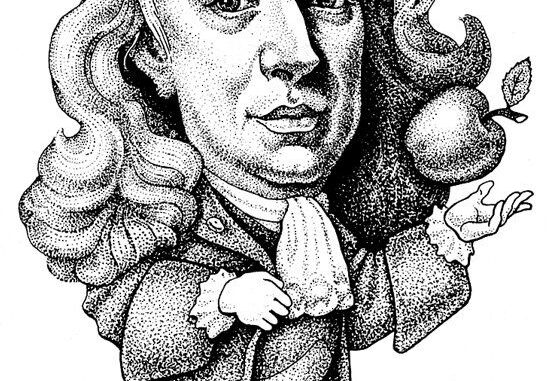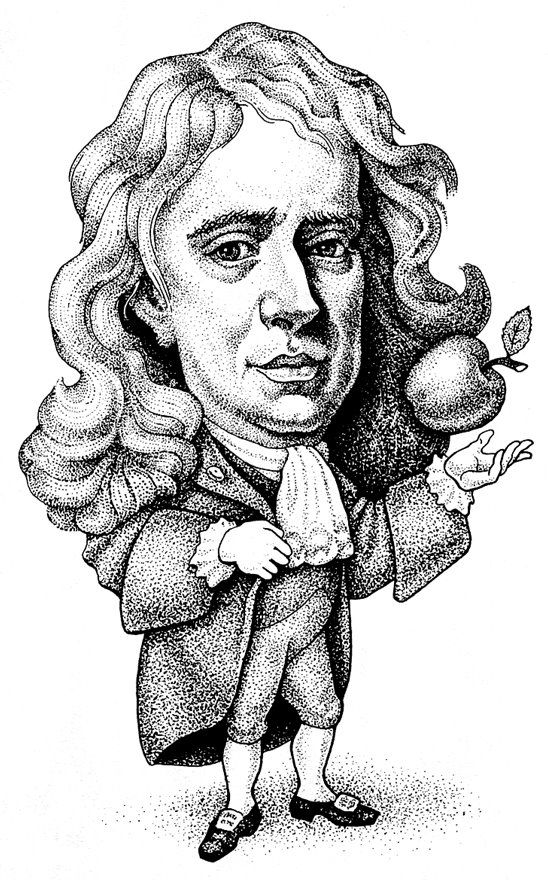
Isaac Newton Biography: Who is Isaac Newton ?
According to Biobriefs, Isaac Newton (1643–1727) was one of the most influential scientists in history, known for his pioneering work in physics, mathematics, and astronomy. His discoveries in the laws of motion, universal gravitation, and calculus laid the foundation for classical mechanics and have shaped modern science. Newton’s contributions remain as relevant today as they were in his time, making him an enduring figure in the history of science.

Isaac Newton Wiki Profile
- Full Name: Sir Isaac Newton
- Date of Birth: January 4, 1643
- Date of Death: March 31, 1727
- Age at Death: 84 years
- Place of Birth: Woolsthorpe, Lincolnshire, England
- Nationality: English
- Profession: Scientist, Mathematician, Astronomer, Philosopher
- Net Worth (Historical Estimate): Equivalent to several million USD today
- Famous For: Laws of Motion, Theory of Gravitation, Calculus
Isaac Newton Early Life and Family Background
Isaac Newton was born on January 4, 1643, in the small village of Woolsthorpe, Lincolnshire, England. His father, also named Isaac Newton, was a prosperous farmer who passed away three months before Isaac’s birth. His mother, Hannah Ayscough, remarried when Newton was three years old, leaving him in the care of his maternal grandmother.
Newton’s early life was marked by emotional challenges. He did not have a strong bond with his stepfather, and he felt estranged from his mother, who left him for her new family. Despite these difficulties, Newton developed a keen interest in understanding the world around him. His childhood fascination with mechanical devices and natural phenomena set the stage for his future scientific endeavors.
Isaac Newton Education
Isaac Newton’s formal education began at local schools in Lincolnshire, where he quickly distinguished himself with his intelligence and curiosity. At age 12, he attended the King’s School in Grantham, where he showed a strong aptitude for mathematics and science. Despite his promising abilities, his mother initially tried to pull him out of school to manage the family estate. However, his academic potential convinced her to allow him to continue his education.
In 1661, Newton entered Trinity College, Cambridge, where he immersed himself in the study of mathematics, astronomy, and philosophy. Although the curriculum at Cambridge was traditional, focusing on classical texts, Newton pursued his interests independently. He studied the works of prominent scientists like Johannes Kepler, Galileo Galilei, and René Descartes, sparking his ideas that would later revolutionize science.
Isaac Newton Career and Major Contributions
Isaac Newton’s career and contributions spanned various scientific disciplines, reshaping our understanding of the universe.
1. The Laws of Motion and Universal Gravitation
While at his family home in Woolsthorpe during a plague outbreak in 1666, Newton developed the basic principles of his theory of gravitation. This led him to formulate the Three Laws of Motion, which describe the relationship between a body and the forces acting upon it. His laws of motion became the cornerstone of classical mechanics, and his Law of Universal Gravitation explained the gravitational attraction between bodies, including planets.
2. Development of Calculus
Newton independently developed calculus, which he called “the method of fluxions.” Although the German mathematician Gottfried Wilhelm Leibniz developed a similar mathematical framework around the same time, Newton’s contributions are fundamental to calculus. His work in this area allowed for more accurate calculations of motion and change, which are essential in physics, engineering, and other scientific disciplines.
3. Optics and Light
Newton also made groundbreaking discoveries in optics. Through a series of experiments, he demonstrated that white light is a mixture of colors, which can be separated through a prism. This discovery helped him establish a theory of color and led to advancements in the understanding of light and vision. He published these findings in his book Opticks in 1704.
4. Mathematics and The Principia
In 1687, Newton published his magnum opus, Philosophiæ Naturalis Principia Mathematica, commonly known as The Principia. This work outlined his theories on gravity and motion, mathematically proving the laws governing celestial bodies and revolutionizing scientific thought. The Principia is regarded as one of the most influential books in the history of science.
5. Later Life and Role as Warden of the Royal Mint
In his later years, Newton served as Warden of the Royal Mint (1696–1699) and then as Master of the Royal Mint (1699–1727). In this role, he was responsible for implementing the Great Recoinage of 1696, which aimed to restore confidence in England’s currency. Newton took his duties seriously, applying his scientific rigor to address counterfeit currency, even personally prosecuting counterfeiters.
Isaac Newton Personal Life, Relationships, and Legacy
Isaac Newton is believed to have lived a celibate life, with no record of him marrying or having children. His personal relationships, even with close friends and associates, were often strained. Newton was known for his intense focus and sometimes abrasive personality. His quarrels with other scientists, including Robert Hooke and Leibniz, reflect his fierce pride in his work.
Newton’s religious beliefs were also complex. He was deeply interested in theology and alchemy, and his writings on these subjects suggest he held unconventional views. Newton believed in an intelligent creator and studied biblical prophecies, but he rejected the doctrine of the Trinity, which was controversial at the time.

Isaac Newton Net Worth and Influence
Estimating Newton’s net worth in today’s terms is challenging, as the concept of net worth as we know it did not exist during his time. However, as Master of the Royal Mint, he earned a respectable income, which, along with his other ventures, would likely equate to several million dollars by today’s standards.
Newton’s legacy is immeasurable. His discoveries in physics, mathematics, and optics paved the way for modern science. His laws of motion and theory of gravitation are fundamental principles that underpin much of today’s technological advancements.
Isaac Newton’s Impact on Science and Humanity
Newton’s influence extends beyond science. His work provided a framework for the Enlightenment, an intellectual movement emphasizing reason and empirical evidence. Scientists, philosophers, and even political thinkers drew inspiration from Newton’s methodical approach to understanding the natural world. Figures such as Albert Einstein regarded Newton’s theories as a foundation for their own work.
Newton’s enduring legacy is a testament to his unparalleled contributions to human knowledge, and his life story continues to inspire scientists and thinkers worldwide.
Frequently Asked Questions (FAQ)
1. When was Isaac Newton born?
- Newton was born on January 4, 1643, in Woolsthorpe, Lincolnshire, England.
2. What is Isaac Newton famous for?
- Newton is known for his Three Laws of Motion, the theory of universal gravitation, and developing calculus, as well as his work in optics.
3. Did Isaac Newton have a family?
- No, Isaac Newton never married and had no known children.
4. What is Newton’s net worth in modern terms?
- Although exact figures are speculative, Newton’s earnings would amount to several million dollars today.
5. What book did Newton write?
- Newton’s most famous work is Philosophiæ Naturalis Principia Mathematica, often referred to as The Principia.

Leave a Reply